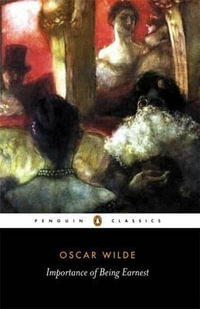
The Miser and Other Plays
Paperback | 27 May 2004 | Edition Number 1
At a Glance
Paperback
RRP $32.99
$30.25
Aims to ship in 25 to 30 business days
When will this arrive by?
Enter delivery postcode to estimate
About The Author
Molière was the stage name of Jean Baptiste Poquelin, the son of a wealthy merchant upholsterer. He was born in Paris in 1622. At the age of twenty-one he resigned the office at Court purchased for him by his father and threw in his lot with a company of actors to found the so-styled 'Illustre Théâtre'. The nucleus of the company was drawn from one family, the Béjarts. Armande, the youngest daughter, was to become his wife.
Failing to establish themselves in Paris, the company took to the provinces for twelve years. When they returned to the capital it was with Molière as their leader and a number of the farces he had devised as their stock in trade. Invited to perform before Louis XIV, Molière secured the King's staunch patronage. In 1659 Les Précieuses ridicules achieved a great success, which was confirmed by L'École des femmes three years later. With Tartuffe, however, Molière encountered trouble; it outraged contemporary religious opinion and was forbidden public performance for several years. Don Juan also had a controversial history. Le Misanthrope, first performed in 1666, is generally considered to be the peak of Molière's achievement. Among plays that followed were L'Avare, Le Médecin malgré lui, Les Femmes savantes, and Le Bourgeois Gentilhomme, one of the comedy-ballets to which Lully contributed the music.
By 1665 the company had become 'la troupe du Roi', playing at the Palais Royal. While taking the part of Argan in Le Malade imaginaire in 1673, Molière was taken ill, and he died the same evening. The troupe survived, however, to become one of the forerunners of the Comédie-Française.
ISBN: 9780140447286
ISBN-10: 0140447288
Series: Penguin Classics
Published: 27th May 2004
Format: Paperback
Language: English
Number of Pages: 336
Audience: General Adult
For Ages: 18+ years old
Publisher: Penguin UK
Country of Publication: GB
Edition Number: 1
Dimensions (cm): 19.7 x 13.1 x 2.0
Weight (kg): 0.25
Shipping
| Standard Shipping | Express Shipping | |
|---|---|---|
| Metro postcodes: | $9.99 | $14.95 |
| Regional postcodes: | $9.99 | $14.95 |
| Rural postcodes: | $9.99 | $14.95 |
How to return your order
At Booktopia, we offer hassle-free returns in accordance with our returns policy. If you wish to return an item, please get in touch with Booktopia Customer Care.
Additional postage charges may be applicable.
Defective items
If there is a problem with any of the items received for your order then the Booktopia Customer Care team is ready to assist you.
For more info please visit our Help Centre.























